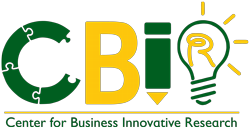 The Certified Professional-Grant Writing Entrepreneurial Development (CP-GWED) Guild is a professional national membership association for anyone interested in the Grants and Contracts Industry. CP-GWED helps grant and contract professionals continually improve their professional credentials, knowledge, skills, and expertise in grant and contract administration, including proposal development, pre-and post-award management. We set the standard with our commitment to ethical practices, professional development offerings, networking, resources, and our community of professionals committed to the public good of our communities and our planet.
The Certified Professional-Grant Writing Entrepreneurial Development (CP-GWED) Guild is a professional national membership association for anyone interested in the Grants and Contracts Industry. CP-GWED helps grant and contract professionals continually improve their professional credentials, knowledge, skills, and expertise in grant and contract administration, including proposal development, pre-and post-award management. We set the standard with our commitment to ethical practices, professional development offerings, networking, resources, and our community of professionals committed to the public good of our communities and our planet.
Vision Statement: Our ultimate goal is to train and assist visionaries in bringing their vision to fruition.
Mission: Our mission is to provide Business Development Consulting Services, Professional Development, and Mentorship to Grant and Contract Professionals to help them succeed in their careers with excellence and integrity.
Membership Benefits
- Free membership
- Receive notifications of industry conferences and events featuring the nation’s top experts, round-table discussions, funder presentations, exhibitors, and individual proposal review sessions.
- Attend the CBIR Annual Spring White Linen Networking Event in Atlanta, Georgia, at the member discounted rate. This event occurs every Spring to bring together grant and contract professionals eager to share best practices, stay abreast of trends in our field, and network with peers from across America and abroad.
- Provided an opportunity to speak at CBIR and CP-GWED Guild events about your business services and experiences in the industry.
- Attend CBIR Refresher Courses at a discounted rate.
- Receive free grant and contract funding opportunities.
- Receive a free copy of our quarterly newsletter, submit articles, and advertise your business services.
- Receive a review of proposals and applications at the member discounted rate.
- Host or Sponsor a CBIR event, and participants receive up to $20 off ticket fee, and Host or Sponsor can receive up to four free tickets and 5% of ticket sales.
Proposal Development Tips & Best Practices
Planning & Prioritizing
- READ the Notice of Funding entirely and thoroughly; highlight it and make notes on it. This is your tool for writing the best grant proposal that meets funder expectations.
- Keep a library of answers to common questions easily accessible. Maintaining a content library helps save time searching for what you used on previous proposals and allows you to spend time tuning it to the funder and program you are applying.
- Use data on past efforts to set and communicate expectations for future grant development efforts and resource needs. Protect your time and continue to revise your estimates on the time it takes to raise grant funding for your organization. Become the expert!
- Set an internal deadline for any proposal of at least two weeks before the “real” deadline. This gives you sufficient buffer time for any final review and revisions.
- Always aim to submit at least three days before the deadline.
- If you did not win the award, use it as a learning experience! Contact the funder and ask for your scoring. Use this as a tool to improve so you can do better next time.
- Complete your social media profiles and keep them up to date. Funders often check public sources for information on their applicants. Make sure your external appearance is current, consistent, and professional.
Research & Prospecting
- Use social media to learn about funders and (yes) for your own professional development.
- Regularly schedule a time to find and fill your pipeline of future funders. Find the best places and tools to use to search for funders that are a good match for you.
- Always work to build relationships with grantmakers before applying. (unless they specifically tell you not to contact them)
- Ensure that the grant that you’re writing is the best fit – not just for your agency but also for the funder.
- Seek out good partners to fund your mission, and don’t try to appear like you meet eligibility requirements that are a stretch. If you are not a good fit – you are wasting everyone’s time.
Proposal Development & Submission
- When using an online submission portal, review all aspects of the system right away to ensure your browser and computer are compatible with the portal to avoid any last-minute technical glitches.
- Set a clear timeline for proposal development and submission, including tasks and assignments for other staff whose input and knowledge you’ll need.
- Involve the stakeholders – make sure that you listen to their needs and incorporate them into the proposal.
- You may want to develop a “boilerplate” narrative that can easily be modified. It will save you time, especially when working on multiple proposals.
- Understand restrictions (character limits, file types, supported browsers, etc.) before starting the application.
- Ensure that all elements of your grant application help tell the same story – from the cover letter to the budget.
- Make your budget justifications as detailed as possible – explain your expenses so that it promotes the OMB’s basic cost principles and the funder’s guidelines – reasonable, prudent, and allowable.
- When preparing an application, check your data. Then recheck it.
- Edit your proposal and find a colleague that can critically review your work and compare the work to the grantmaker’s guidelines.
- If the funder provides a template for any part of the application – use it. Using the funder’s budget format is a common request.
- Use the most recent version of an internet browser supported by their online system.
- You don’t need to use all the character space given. Funders typically give you more space than you need and appreciate concise, complete responses.
- Even though you have limited formatting options, make your application readable. Use simple bullets, spaces, and blank lines, limit your abbreviations, and don’t skimp on proper punctuation.
- Double/triple-check your budget math. If it doesn’t add up – time is wasted trying to get the correct information from you. Or worse yet, your application may not get considered.
- If applied to a funder before, use the same login and account you used previously. If you had a turnover or did not remember, contact the funder to ask. Funders want to keep applications from the same organization organized together, and creating a separate account causes issues on their side.
- Realize the risks associated with saving your drafts in an online form. Some forms are suitable for protecting your draft work, and others are not. If unsure, create your draft application elsewhere and then copy/paste. And don’t forget to print out your application proposal before submission.
Stewardship (management)
- Take time to thank funders who spent time reviewing and evaluating your application, even if you did not receive funding.
- Protect your organization’s institutional knowledge regarding funders and grants. You should develop a system to maintain funder relationships, grant history, and upcoming deadlines.
- Use the same format for follow-up reports that you used for the original application to help the funders understand and digest your progress and results.
Professional Development
- Keep up with industry changes.
- Pursue professional development opportunites.
- Abide by CP-GWED Guild Code of Ethics.
- Join and get actively involved in the CP-GWED Guild.
- Join the Guild Steering Committee, attend on-site and virtual meetings. (Chair, Co-chair, Secretary, Treasurer)
Members
|
| Name | Industry |
|
Demetria Lovett Chaucey Moss Demetrius Odom Monica Kearse, Ph.D. Tawanda Ellis Tamika Nelson Melonese Williams Philip Hall Thurston Dyson, Sr. Kimberly Tallon Alicia Graham Walter Jordan Tanja Jordan |
Supply and Logistics Community and Economic Development Cyber Security Business Development Business Development Healthcare Management Health and Youth Development Community and Economic Development Community and Economic Development Community and Economic Development Youth Development Community and Economic Development Community and Economic Development |

